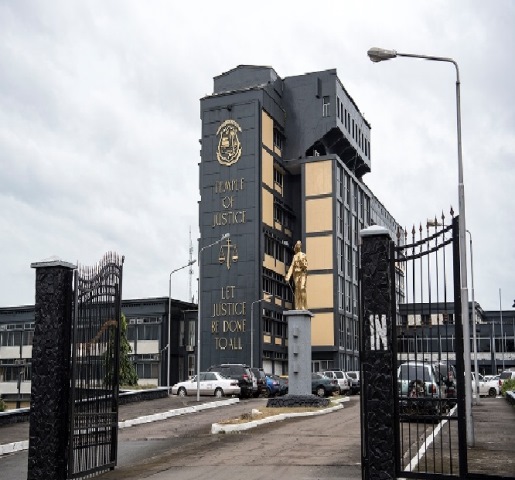The current political turmoil within Liberia’s House of Representatives has primarily stemmed from a conflict between lawmakers supporting the embattled Speaker J. Fonati Koffa and a majority bloc opposing his leadership. The situation escalated when the majority bloc, consisting of over 40 lawmakers, began conducting separate meetings, successfully stymying legislative operations and leaving Koffa’s supporters in a difficult position, unable to achieve a quorum to proceed with sessions. Koffa requires the attendance of at least 37 representatives to conduct business effectively, but with his faction only comprising around 30 members, the legislative function remains severely disrupted. The internal divisions are compounded by the broader implications of this power struggle, as Koffa has sought legal intervention to bolster his legitimacy and compel his rivals to participate in legislative activities.
In a recent development, Liberia’s Supreme Court, through Justice Yamie Quiqui Gbeisay, Sr., issued a stay order prohibiting any further actions by the opposing lawmakers aimed at removing Speaker Koffa. Despite this legal directive, sources indicate that the majority bloc is determined not to comply, reportedly receiving support from notable figures such as Vice President Jeremiah Koung, Sen. Emmanuel Nuquay, and Deputy Speaker Thomas Fallah. This decision by the Supreme Court places additional pressure on both sides in the standoff, particularly with Koffa’s refusal to acknowledge the legitimacy of the opposing factions’ maneuvers. As tensions rise, the fate of Koffa’s leadership remains uncertain, with both sides preparing for an upcoming showdown.
Amplifying the crisis, the legislative environment has been marred by accusations of mismanagement and corruption against Koffa from his adversaries. This has created an environment of distrust and conflict that undermines the potential for cooperation within the House. While Koffa has filed a writ of Mandamus with the Supreme Court seeking to compel the attendance of the lawmakers absent from sessions, the majority bloc’s refusal to participate continues to be a significant impediment. The situation has reached such a level of deadlock that Koffa has labeled it a critical failure, necessitating Supreme Court intervention to restore legislative order.
Reports suggest that Koffa’s attempts to advocate for transparency through calls for a legislative audit may have contributed to turning some colleagues against him. This endeavor for audit and transparency, while commendable, clashes with a longstanding culture within the Legislature that has historically resisted oversight and accountability. Many lawmakers appear reluctant to embrace reforms that would unveil financial operations, thereby complicating Koffa’s position further. The inherent challenge of introducing meaningful change within a context of entrenched political interests underscores the difficulty Koffa faces in garnering support.
As the confrontation unfolds, public scrutiny intensifies over the actions of both camps, with citizens keenly aware of the implications of legislative dysfunction for governance in Liberia. The stakes are high, as this internal discord among lawmakers not only threatens the legislative agenda but also affects broader governance issues, which have been traditionally marked by calls for action against corruption. The duality of competing interests, alongside the pervasive reluctance to embrace transparency, creates a challenging atmosphere for any potential compromise or reform.
As both factions brace for the impending Supreme Court conference, the outcome promises to impact the future of the House significantly. There remains cautious optimism that the court’s intervention could pave the way for a resolution, compelling lawmakers to return to their duties and address urgent legislative matters. However, the climate of distrust and ongoing rivalry suggests that any resolution may be temporary unless underlying issues regarding accountability and transparency are addressed decisively. The situation in Liberia’s House of Representatives serves not only as a microcosm of the challenges facing the nation’s governance but also as a clarion call for re-evaluation of legislative practices and accountability mechanisms that have been long overdue for reform.














